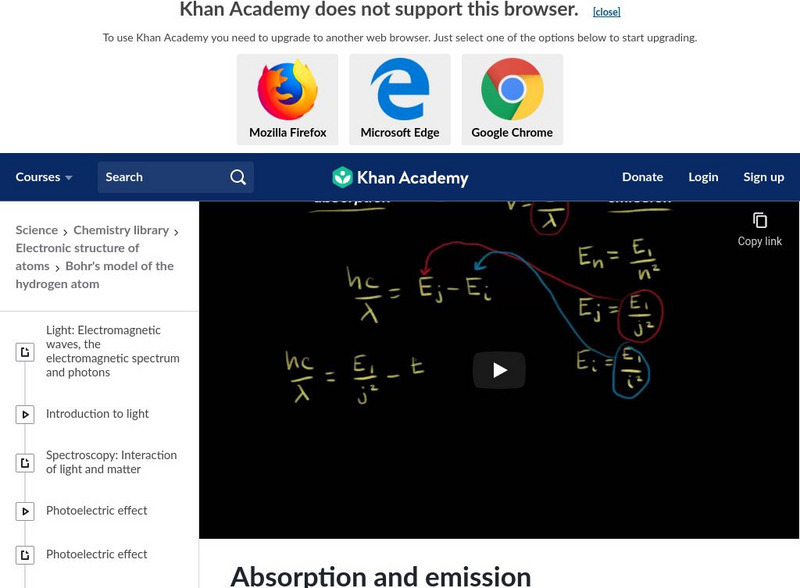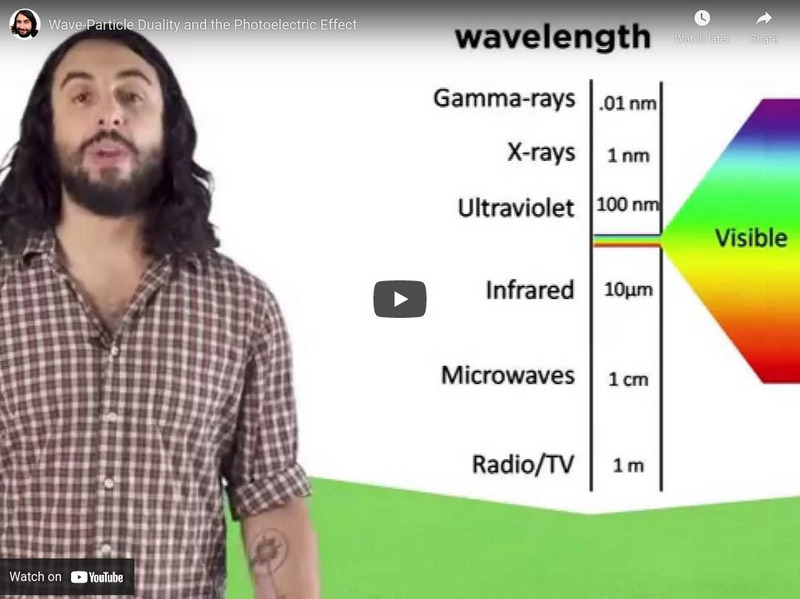Physics Girl
How does laser cooling work?
Lasers are known to burn things, fix eyes, and dance on powerpoint presentations. But they can also be used to cool objects to some of the coldest temperatures in the universe.
Professor Dave Explains
Photosynthesis: Light Reactions and the Calvin Cycle
We get energy by eating other organisms, but plants don't have to do that. They can build their own food out of water, carbon dioxide, and sunlight. I'm sure you've heard of photosynthesis before, but let's take a look at some of the...
Professor Dave Explains
Wave-Particle Duality and the Photoelectric Effect
Look, up in the sky, it's a particle! It's a wave! Actually it's both. It's light! How do we know about this stuff? Well, because of Einstein for one. He did more than E = mc^2, you know. But don't stare at the sun to see for yourself,...
Catalyst University
Melanin Physiology: Melanin Absoprtion of UV Light and Internal Conversion to Heat
Melanin Physiology: Melanin Absoprtion of UV Light and Internal Conversion to Heat
Mazz Media
Light
Using real world demonstrations and colorful graphics, Real World Science: Light teaches students the different properties of light, pertinent definitions and how light travels. Students will learn how different mediums can affect light,...
Professor Dave Explains
Widefield and Confocal Fluorescence Microscopy
We just learned about electron microscopy, so what was the next major innovation in microscopy in the 20th century? That would be fluorescence microscopy, of both the widefield and confocal varieties. How does this work? What is...
Professor Dave Explains
Bohr Model of the Hydrogen Atom
Why don't protons and electrons just slam into each other and explode? Why do different elements emit light of different colors? Niels Bohr knew why. And now you will too!
Visual Learning Systems
The Nature of Light: Nature of Electromagnetic Waves
Students will learn about the different frequencies along the electromagnetic spectrum. Vivid animation is used to explore the visible spectrum of light and the colors it allows us to see everyday. The video also investigates various...
Visual Learning Systems
Light: What Is Light?
Upon viewing the Light video series, students will be able to do the following: List some of the reasons light is important to all living things. Understand that light is a type of energy. Describe how light behaves both as a wave and as...
PBS
Pbs Learning Media: Light Particles Acting Like Waves: The Uncertainty Principle
This video segment adapted from A Science Odyssey uses a laser beam to demonstrate how light particles act like waves, illustrating Heisenberg's Uncertainty Principle. [2:07]
Khan Academy
Khan Academy: Absorption and Emission
An explanation of the absorption and emission of energy using shell models. [10:30]
Other
Professor Dave Explains: Wave Particle Duality and the Photoelectric Effect
Professor Dave explains what we mean by wave-particle duality and how this relates to the photoelectric effect. He discusses how this relationship was discovered through the work of Max Planck and Albert Einstein. [3:55]



